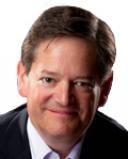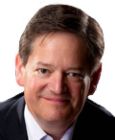Smoking
Things To Do Today: What’s on Your List?
If something’s vitally important, keep it off your to-do list
Posted January 10, 2014
Some time ago ago, the website Open Culture posted a to-do list written at some point in his life by the country music legend Johnny Cash, one of the most influential musicians of the twentieth century. We don’t know how old he was at the time, and it’s the only such list from him we have. When Johnny Cash sat down and made a list of “Things to Do Today,” he put ten things on the list. Here they are:
1. Don’t smoke
2. Kiss June [his wife]
3. Don’t kiss anyone else
4. Cough
5. Pee
6. Eat
7. Don’t eat too much
8. Worry
9. Go see Mama
10. Practice piano
This list, the Open Culture editors note, “feels almost like something you and I could have written, the stuff of mortals. In any given day, we all ‘Cough,’ ‘Eat’ and ‘Pee.’ We struggle with will power (not eating too much, perhaps not smoking, and maybe not fooling around with anyone but our spouse). And hopefully we’re good to our loved ones. So what sets Johnny Cash apart from the rest of us? Just June and the piano.”
Johnny Cash’s to-do list mixes two kinds of events: those you need to put on a to-do list, and those you don’t. Most of us will cough, pee, eat, and worry every day—whether these activities find their way onto our to-do lists or not. We habitually do these things, and thus we don’t actually need to make decisions about whether or not we’re going to do them.
The other things on the list are a different matter. Will we visit the people we care about? Will we practice the skills that sustain us? If these activities aren’t built-in habits, then we need to make decisions about whether or not we’ll do them. The presence of not smoking on Johnny Cash’s list suggests that smoking was indeed a habit, and that absent any conscious decision to the contrary, he’d probably end up smoking.
The things we do each day end up fitting into three categories: things we instinctively do, things we habitually do, and things we have to make decisions about doing. Blaise Pascal, a 17th-century French mathematician and philosopher, once described habit as our second nature. Our first nature is nature itself, Pascal observed, and habit is a second nature. In other words, our first nature is made up of things we do instinctively, and our second nature is made up of things we do habitually. Everything else we have to make decisions about. Life is made up of instincts, habits, and decisions.
Given this situation, our goal should be to make as few decisions as possible about things that matter most. Things that matter need to be embedded in our lives as ongoing habits, rather than languishing on our lists of things to do. If it’s important, make it a habit; make it second nature. Then it will happen without us even thinking about it.
If your to-do lists are like mine, however, they’re longer than you’d like, and fewer things get crossed off each day than you’d like. Why? Because we’ve made the decision that they ought to be done, but we haven’t made the decision to do them, at least not yet. Our goal, ironically, should be to stop making decisions about things that matter most. In other words, we need to pare down decisions by making what matters most into habits.
For example, some people become vegetarian because it’s simpler than trying to figure out whether a particular cow or chicken or lamb had the kind of life they’d morally approve of. Some people quit drinking alcohol because it’s simpler than navigating the line between enough and too much. Some people always eat fish on Fridays, or always go to grandma’s house for Thanksgiving, or always go to the gym at 6 AM. In any of these situations, if you have to make a decision, then it’s not second nature, at least not yet.
To ensure that the most important things get done, no matter where you happen to be or what else is going on, work to make them second nature. Pare down decisions. In so doing, you’ll become the person you want to become, and you’ll have to make fewer decisions along the way.


